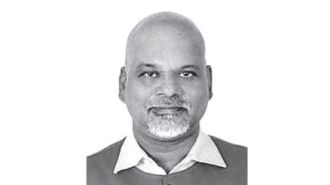CEO Shoptalk: HIRING >>> Hard Skills, Soft Skills, Experience, Common Sense, Character
Not long ago I was discussing the hiring practices of a mature company I had first met as a startup when I advised its CEO. Early in their existence they had used a decent headhunter, but when they brought it in house, they stubbed their toes over process.
The company has since successfully exited and the story is archived, but there is a discussion around hiring that may be useful.
In our discussion, the CEO was decrying post-Pandemic hiring practices and the pressure to allow folks to work from home or flexible hours. There was a lot of confusion as there was no experience upon which to draw.
We ended the conversation by my discussing my own philosophy of hiring which is to seek out high quality individuals as measured by character and use the yardstick of hard skills, soft skills, experience, and common sense top see how they measure up.
What I really want to focus on today is hard skills v soft skills.
Know what job you are hiring for and the requirements of that job
It is essential that you have a job description that provides a clear sense for the hirer and the candidate as to what the company is looking for and why. This includes compensation.
A great number of weak hires are created because the basic expectations are not clear.
We will circle back to this, but hold this question in your mind — What does the perfect candidate for this job look like?
Know who you are hiring
It is essential before you even interview a candidate for a job to ensure you have some sense of who they are and that you organize your thoughts around discovering their character.
Indeed has a great article cataloging the most common character traits:
15 Top Character Traits With Definitions and Examples
This is one of the areas that you can develop with skillful interview questions.
I always used to like to know how a person financed their own education. I did not feel bad if Dad wrote a check, but I did feel better if the individual went to school on the GI Bill or worked their way through school. I felt like that was a free look into their character.
Catalog hard skills
Hard skills are the specific job-related knowledge and abilities that the successful candidate must possess to simply do the job.
If you are hiring a senior accountant, they have to have education in accounting, be a Certified Public Accountant, and be able to operate an accounting software package. Those are hard skills.
Identify and catalog the candidate’s hard skills starting with their resume.
Identify soft skills
Soft skills are the personal qualities of the successful candidate that will allow the employee to do their job and thrive in your workplace and culture. This is the first time you consider “culture fit.”
If a position is a leadership position, then the successful candidate has to be a good communicator and a team builder which will both require empathy.
Soft skills will also overlap with character traits.
Experience
In evaluating hard and soft skills, it is essential to measure the magnitude of experience somebody has. You have to put a relative number or comparison on it.
If you are a pilot with 10,000 hours as the PIC (pilot in command), you are more qualified, perhaps, than a similarly schooled pilot with 1,000 hours.
If you are tasked to be a team leader, then how long you’ve been building teams is an important fact for an employer to know.
I find most people doing hiring do not probe for the depth of experience in the arena of soft skills.
Common sense
Common sense is a hard thing to measure, but the way I got at it was to ask people to tell me a story about either a hard or soft skill with which they had meaningful experience and what they learned that would definitely work or not work — a rule of thumb.
One time a fairly senior auditor told me she had learned that when you had an embezzler whatever number you first discovered missing the final number would be 3X that number.
It was quite arcane and when I had an embezzler turned out to be brutally true.
Create a model candidate profile
Now, with the discussion above, when you make the job description for the position do this: write a profile for the perfect candidate. Use character, hard skills, soft skills, experience, and common sense.
Why? So you can tell if the right person is the first person to walk into your office.
Bottom line it, Big Red Car
Like everything in business the hiring process responds to organization and planning. Take the discussion above and develop a process and a set of questions. Make a model hire profile.
I promise your hiring results will reflect the work you put into it.
But, hey, what the Hell do I really know anyway? I’m just a Big Red Car.






